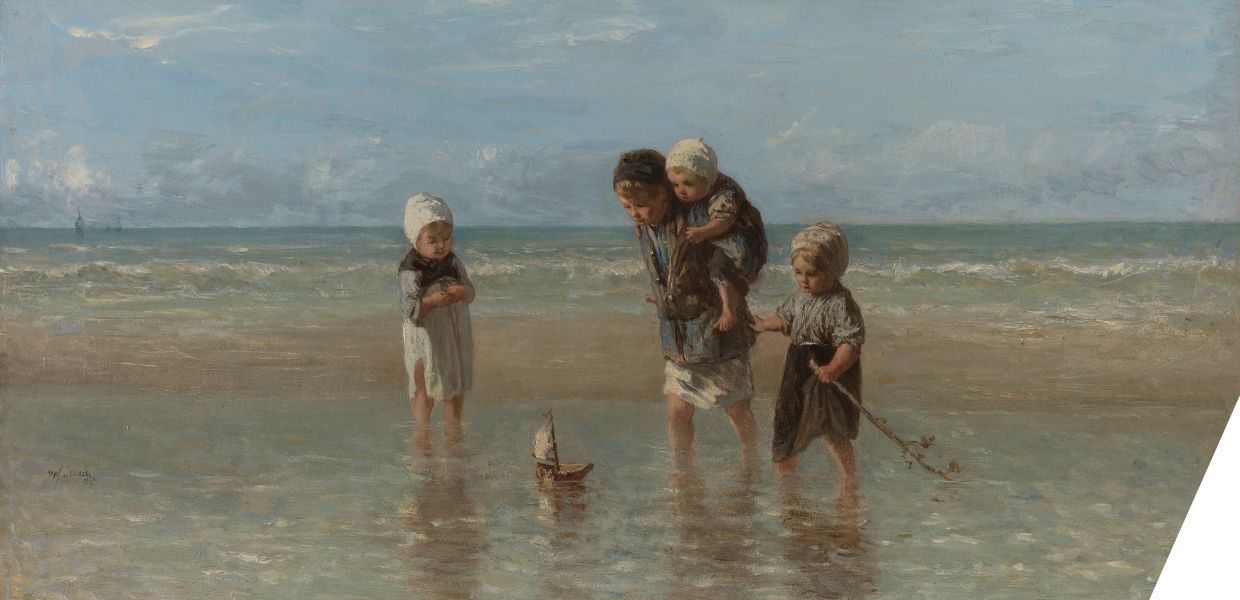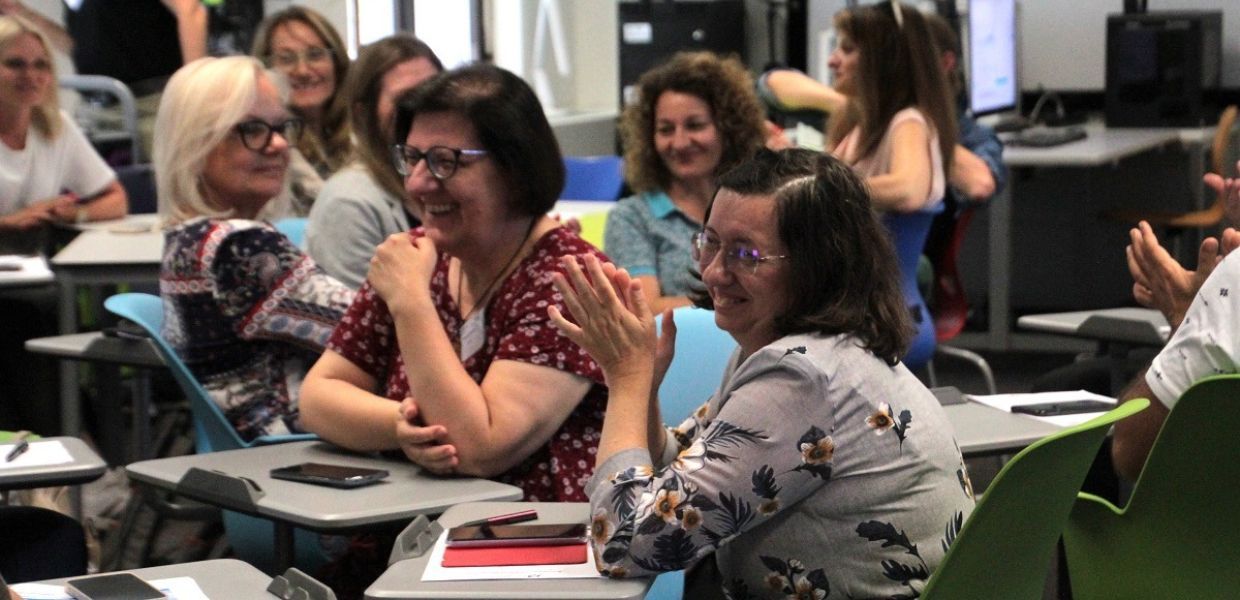Through inclusive activities, this lively community of professionals was expanded, exchanged ideas and experience on the use and reuse of Europeana's resources and developed new educational material. More than 2,500 primary and secondary school teachers, museum educators, and other cultural heritage professionals participated in the activities organised by the Europeana Initiative and European Schoolnet, impacting more than 21,000 students. Read on to discover which innovative activities were developed under this joint effort and how educators were engaged!
'Digital education with cultural heritage 2023' MOOC
The 'Digital Education with Cultural Heritage 2023' MOOC offered participants the chance to deepen their knowledge of digital cultural heritage in two languages: English and for the very first time, Romanian. The English version kicked off in late February and ran until mid-April, while the Romanian version started in late April and ended in the first week of June.
About 1,500 educators registered for the MOOC, which was a re-run presenting upgraded and new material. Over a fifth of the participants successfully completed it. The online course attracted educators from more than 50 countries, mainly secondary school teachers.
Participants were invited to explore ways to bridge the gap between formal and non-formal education, using digital cultural heritage and innovative pedagogies. The course also focused on Europeana's APIs by offering a webinar on the topic and a whole unit in one of the modules, while also showcasing examples and good practices to inspire and help participants design their own learning experience.
National training courses
For the very first time, Europeana Education Ambassadors conducted training courses at local and national levels to train colleagues on the use and reuse of Europeana's resources. In total, more than 60 training courses took place in Croatia, Greece, Italy, Latvia, Malta, Portugal, Romania, Spain and Turkey, engaging over 1,600 formal and non-formal educators. During these training courses, participants had the opportunity to learn more about the Europeana Initiative, and how to search and use educational content made available through Europeana.eu and the Teaching with Europeana blog.
Europeana Education Competition 2023
With over 180 participants from 19 countries, the Europeana Education Competition 2023, developed within the framework of the STEM Discovery Campaign 2023, was one of the most successful competitions of this umbrella initiative. This year, the competition was open to all formal and non-formal educators. It invited them to find innovative ways of using arts and digital science heritage shared through Europeana.eu in their educational activities and share their Story of Implementation. These are stories that educators develop to describe the implementation of one of the learning scenarios of the blog in their own context. Following a predefined judging process, the 32 best resources were selected and rewarded with a certificate of achievement and published on the Teaching with Europeana blog. In addition, the winners were invited to a workshop with Europeana Education (described below). Thirteen Stories of Implementation were also shortlisted and will be available on the blog soon.
New Stories of Implementation
As a result of the National Training Courses and the Europeana Education Competition 2023, about 180 new Stories of Implementation were collected. Most of these stories are in English, though for the first time, stories in Croatian, Greek, Italian, Latvian, Portuguese, Romanian and Spanish were also drafted. All these resources will be available online on the Teaching with Europeana blog.
The Teaching with Europeana blog
Between September and June 2023, more than 28,000 users accessed the Teaching with Europeana blog resulting in over 111,200 page views. These numbers reflect that the blog is a valuable source of information, educational content, and materials for the educational community. It offers a wide range of learning resources, from learning scenarios ready to be implemented, to Stories of Implementation of existing learning scenarios; it also includes Updates, through which activities related to the project and interesting topics for educators are presented.
Since September, more than 35 new learning scenarios have been produced (in addition to the 180 new Stories of Implementation now available in the blog) what’s more, there has been a new Update each month. “Updates” refers to blog posts that either disseminate an event or an activity related to the project or present an interesting topic for educators; these blogposts also give useful information on how Europeana.eu and its resources can help educators work on a specific topic in their own educational setting.
Through the different resources, educators can find inspiration and ideas on how digital cultural heritage can be incorporated in formal and non-formal educational activities, also applying innovative pedagogies. The considerable number of new resources is the result of the dedication and work of 13 Europeana Education Ambassadors, participants to National Training Courses and the Europeana MOOCs.
The Europeana workshop
The Europeana workshop, organised by European Schoolnet with the support of the Europeana Foundation, took place in the Future Classroom Lab on the 30 June – 1 July 2023. 40 educators - the winners of the Europeana Education Competition 2023 and the Europeana Ambassadors - met at European Schoolnet premises to share their experiences, inspire and be inspired.
On the first day, educators went through the new developments from Europeana Education, like the supply of more audiovisual and 3D content, while on the second day they delved into the use of AR and VR tools in combination with Europeana's resources. In line with some of the content included in this year's MOOC re-run, on both days participants were trained on the use of Europeana's APIs. On day two, the workshop ended with a visit to the Parlamentarium.




